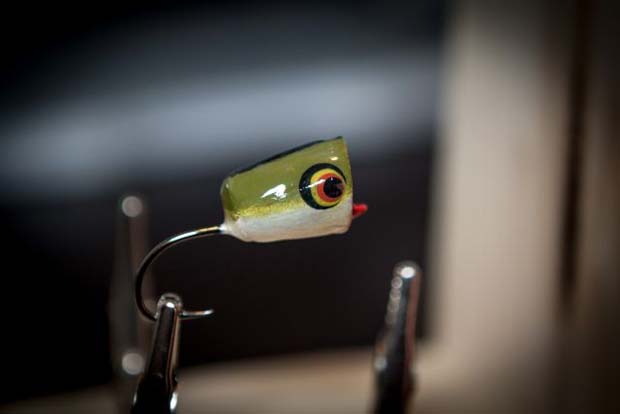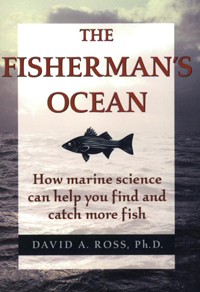The following excerpt is from the book The Fisherman’s Ocean by David A. Ross, Ph.D. Reprinted with permission from Stackpole Books, Mechanicsburg, Pennsylvania.
Fishing Tips Concerning Sound
[dropcap]F[/dropcap]irst and foremost, be quiet when you’re fishing—fish can hear very well. Remember that a fish often hears its food before actually seeing it. For this reason, many types of fishing lures and flies, especially poppers, are designed to create sound or turbulence in the water in imitation of injured prey, thereby attracting a predator. On the other hand, if you drop even a small fly very close to most species of fish you may frighten them. If the fish are in a school, scaring one may ultimately spook the entire school.
Some lures and flies contain small rattles that may also draw in fish. These types of flies can work within the near field of the lateral-line system, and in the far field covered by the fish’s inner ear. At times, such as when water visibility is limited, a lure or a fly that sends out a continuous or steady noise, such as a swimming plug, will do a good job of attracting fish. Popping flies, which usually make a loud but intermittent noise, often draw fish from a distance. Flies that push or move water, such as the Tabory Snake fly, are often very effective, especially at night.
The Sense of Touch
Fish also have a sense of touch, which works mainly through their skin. It’s also possible that fish may use their mouths as a touch sensor. The sense of touch can be important in various behavioral activities; for example, some contact is common among many species when they mate. As I first began writing this book, however, I saw no obvious way that a fish’s sense of touch could influence fishing—until I talked with Dr. Bill Krueger, an ichthyologist from the University of Rhode Island. He mentioned, for example, how a fly line presented across the back of a rolling tarpon often will scatter the entire school within seconds. The bottom line is simply that there is a lot to be learned about the various fish senses, including the sense of touch.
In next Wednesday’s Fish Facts Ross explains more about fish SENSES and how to apply them to improve your fish-catch stats.








